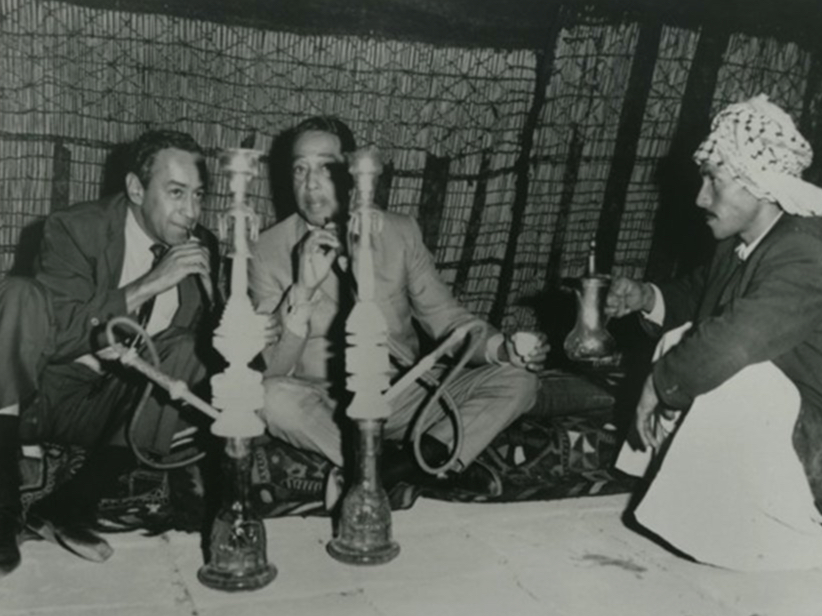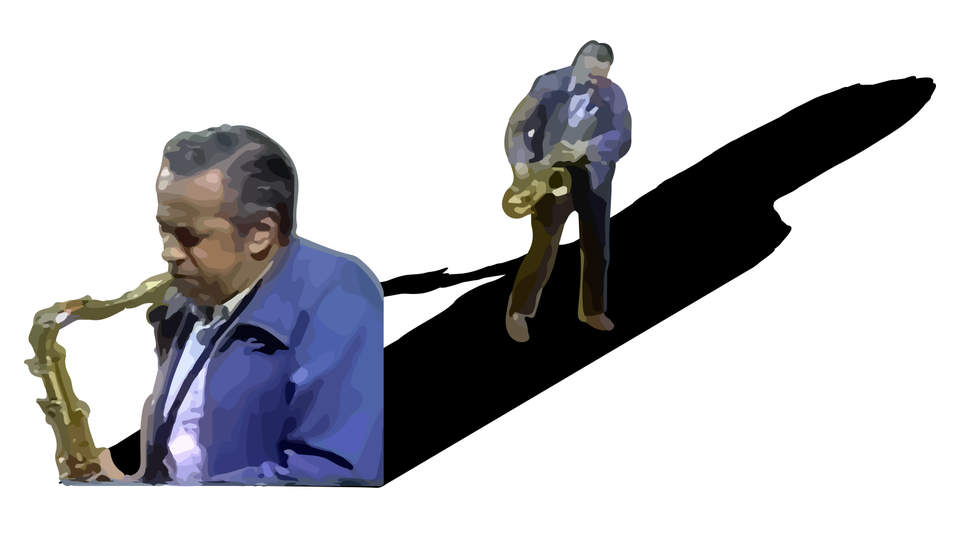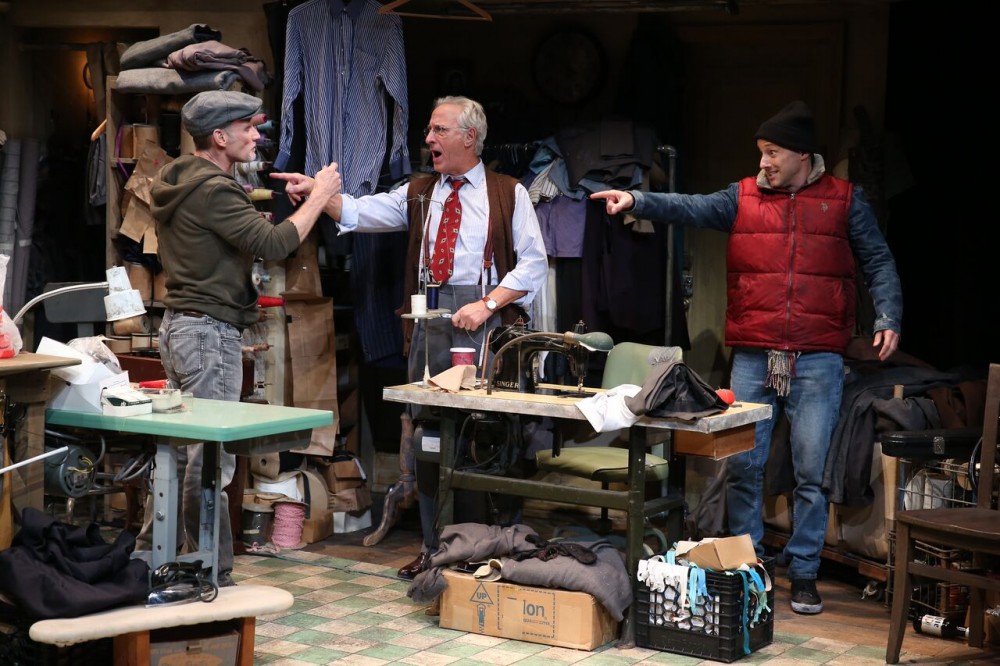by Marilyn Lester
Duke Ellington saxophonist Paul Gonsalves was assured his place in American music history with one giddy, roller coaster ride of a performance at the 1956 Newport Jazz Festival. That’s when Gonsalves blew an epic 27-chorus bridge between Ellington’s 1930 “Diminuendo and Crescendo in Blue” that nearly incited a riot. Gonsalves’ solo was not only truly inspired but is credited with reviving Ellington’s popularity – so much so that mainstream media such as Time magazine covered the event. It is this seminal moment in time that is threaded through playwright Arthur Luby’s Paul Gonsalves on the Road without being a focal point. That distinction is awarded to the Ellington Orchestra’s five day residency in July 1972 at the University of Wisconsin, Madison, and Gonsalves’ participation in it, which bookends the play.
Luby, an attorney by trade, is a long-time Ellingtonian who has studied matters Dukish for well over forty years. The life of Paul Gonsalves is a specialty; yet, in just 75 minutes the fruits of this knowledge are not well-served. Luby chooses to focus almost exclusively on Gonsalves’ substance abuse without an adequate development of other aspects of his character, such as his legendary kindness, sensitivity and almost child-like innocence. Gonsalves joined the Ellington organization in 1950, an association that ended with Gonsalves’ death in 1974, just seven days before Duke’s. There’s a rich 24-year personal and professional history to draw from here in the way Gonsalves figured into the life of the orchestra and its leader. When Mercer Ellington tells Gonsalves that “playing for Duke has to be a life’s calling” volumes are spoken.
As Paul Gonsalves, well-known Washington, DC musician and educator Davey Yarborough, blows in the warm, breathy style of Gonsalves through a number of tunes (arranged by Wayne Chadwick), including the “Diminuendo in Blue,” “Sepia Panorama,” “In a Sentimental Mood” and the piece Gonsalves played at the University of Wisconsin: “Happy Reunion.” Yarborough is not an actor and isn’t meant to be. It’s all about the horn, and at that he’s a master. Gonsalves’ strong suit was in ballads. He was capable of the flash of Newport, but his tenor sax truly came to life when he was blowing a soulful tune, such as Billy Strayhorn’s “Chelsea Bridge;” this, Yarborough aces.
The other actors in Paul Gonsalves on the Road are hamstrung by the play’s expository nature and unfocused structure: scattershot scenes of Gonsalves’ life flash back and forth from his first horn and classical music lessons to a confrontation with an estranged son to the University of Wisconsin residency. There’s no true dramatic arc and this impediment makes it difficult for the cast to get a grip on characterization. Keith Irby as Mercer Ellington is earnest, while Addison Switzer as Duke handles the impossibility of playing an icon with reverence to the Maestro. Tony Thomas II as son Renell Gonsalves and Evan Crump in several roles are commendable. Young actress Emma Tower showed much promise and plenty of authenticity as Gonsalves daughter, Colette.
Paul Gonsalves on the Road is clearly a labor of love, and is a worthy play. It’s a breath of fresh air when attention is paid to jazz – a true American art form. In its current form Paul Gonsalves on the Road is a tasty starter; it whets the appetite but doesn’t a meal make. Indeed, Paul Gonsalves, one of the greatest tenor players of all time, was hamstrung by an unfortunate addiction to alcohol and drugs, which killed him at age 53. He’s a tragic figure that deserves a fuller look into his musical genius and extraordinary life. Perhaps Luby will yet revise his play; it would be a welcome act of history and creativity.
For those with a penchant to know more, the real master class at the University of Wisconsin in which Gonsalves played “Happy Reunion,” go to: http://tinyurl.com/zu6botf


USMissiontoUNESCO – Duke Ellington in Iraq: Tenor saxophonist Paul Gonsalves and Duke Ellington trying a hookah in Ctesiphon, Iraq, 1963. (Duke Ellington Collection, Archives Center, National Museum of American History, Smithsonian Institution.)
Direction by Andy Wassenich kept the pace and the actors smartly and crisply moving. Chris Holland designed sets and lighting, Jess Hoover designed sound and Heather Whitpan costumes. Ashley Thweatt was stage manager.
Paul Gonsalves on the Road, (Washington, DC) Capital Fringe Festival, July 17, 21 and 24 at Logan Fringe Arts Space: Trinidad Theatre, 1358 Florida Ave NW.






















